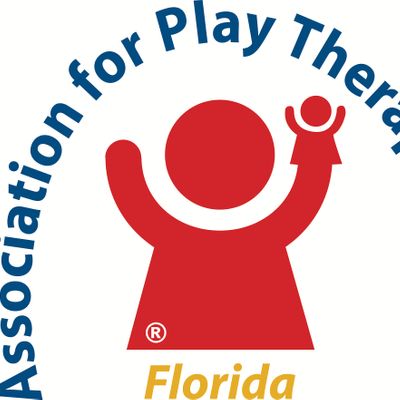
About this Event
Your Choice of Thursday Evening Break-out Sessions featuring:
Helping Clients Develop Secure Attachment - in the Playroom and Beyond! with Brianna Edwards, LMHC, Registered Play Therapist™
Foundational| Play Therapy Skills and Methods
No matter what your theoretical orientation, a positive therapeutic relationship is essential in play therapy, and a secure attachment is pivotal to healing the relational wounds of play therapy clients. In this workshop, participants will gain a basic understanding of Attachment Theory, and the relational patterns of each attachment style, as seen in (and out) of the playroom. Have you heard the saying: “We can’t take a client where we haven’t been ourselves”? In this safe and gentle environment, participants will identify, and reflect on, their own attachment style, and how it influences their work with play therapy clients. We will explore key elements needed to build secure attachment, and the behaviors and abilities that are seen as a result. Participants will walk away with practical tips on how to model secure attachment for their play therapy clients, as well as interventions to encourage the development of a secure attachment style in these clients.
After the session, participants will be able to:
- Name and describe the four attachment styles, including how the styles manifest with their play therapy clients.
- Identify their own attachment style and assess how their attachment style impacts their work with play therapy clients.
- Name and describe the four key abilities needed for play therapy clients to have secure attachment.
- Identify at least one intervention to apply with their play therapy clients to help clients become “earned secure.”
******************************
Play Therapy to Address Trauma: Traveling a Long Road Together with Lisa Saldaña, LMHC, Registered Play Therapist-Supervisor™
Intermediate | Play Therapy Skills and Methods, Play Therapy Special Topics
Working with people who have histories of childhood trauma can be a long journey—a journey along a road scattered with speed bumps, stop, go, and yield signs along the way. The therapist who ignores, disregards, or is simply unable to recognize these signals and signs will likely end up feeling frustrated and stuck and may blame the person they’re trying to help. Recognizing our clients’ speed (or resistance to speed) and honoring their signs and signals will ensure that their destination is reached safely. When working with adults who have a history of childhood trauma, play therapy—with all its metaphorical aspects—provides distance and safety to process and heal early traumatic experiences.
Many of the adults I’ve worked with had been through years of “adult” (talking) therapy with some temporary relief of symptoms. Yet, they came to me because they were still having traumatic responses to triggers that they couldn’t anticipate and often didn’t understand. Through play therapy, they were able to address the trauma(s) in a way that aligned with their age and developmental stages when the trauma(s) occurred.
I have seen and experienced the resilience and strength of the people I work with. I know they will heal if they are given a safe and nurturing place to process their past, learn new coping strategies, and feel cared for, respected, and understood.
Being aware of the power of metaphors and how to use them is vital to creating this safe and protected space. Metaphors, whether verbal or visual, provide a window into how others see and experience the world. When I can understand and speak in their metaphoric language, it helps them feel felt. We will also discuss the importance of truly “being with,” through the lens of interpersonal neurobiology, and how, when we focus our attention on truly being connected, our interactions and interventions are much more powerful.
Now: How many metaphors can you identify above?
After the session, participants will be able to:
- Describe how the play therapist can help a client feel “felt” and understood.
- Describe how the client’s use of metaphor can positively affect the level of empathic understanding for both client and therapist.
- Provide examples of the metaphors and themes that can be seen or heard in the play and/or the words of others.
------------------------------------------------------------------------------------------------------
Registration will begin at 5:00 p.m. Choose your session. Sessions 5:30 p.m. - 7:30 p.m.
FAPT has a room block at the Rosen Plaza. Reservations can be made directly with the HOTEL by calling 1-800-627-8258 or 407-996-9700 or. Please request the GROUP rate for FLORIDA ASSOCIATION FOR PLAY THERAPY. If the hotel is sold out, there is an overflow option at the Rosen Inn Pointe. Ask the reservation agent about this option. You can also be placed on a waiting list for the Rosen Plaza Resort. Reservations due date, Wednesday, March 8, 2024.
Cancellation Policy:
$20 is non-refundable. Written cancellations received 30 days or more prior to the start of the session will receive a full refund of the balance minus $20. Cancellations less than 30 days prior to the start of the conference will forfeit the total cost of registration.
In the very unlikely event that the workshop must be cancelled or postponed by the organizers, the Florida Association for Play Therapy will provide a full refund of the registration fees.
Registering for this event implies your agreement to the following COVID-19 policy.
2 hours of continuing education available
The Florida Association for Play Therapy (FAPT) is an approved provider for the Association for Play Therapy to offer continuing education specific to play therapy. APT Approved Provider 02-115. Play therapy credit will not be awarded to non-mental health professionals. FAPT is approved by the Florida Department of Health under FL Statute 491 to offer continuing education for Social Workers, Marriage and Family Therapists and Mental Health Counselors. Provider Number BAP-50-10520 expires 03/31/2025. FAPT is approved by the Florida Department of Health under FL Statute 490 to offer continuing education for Psychologists. Provider Number BAP-50-10520 expires 05/31/2026.

About our presenters...
Brianna Edwards, LMHC, Registered Play Therapist™ - is a Licensed Mental Health Counselor, Registered Play Therapist™, and TBRI® Practitioner at her clinical practice, Bri’s Counseling Corner, in Orlando, FL. Brianna specializes with children and teens (ages 3-18) who have a history of complex trauma, attachment-related issues, and/or dissociative symptoms. Brianna is EMDR trained, Adoption Competent, and loves thinking outside the box to create new play therapy interventions for her clients. She is passionate about empowering parents with skills to attune to, and meet, their kids’ physical and emotional needs. Brianna teaches CPRT and TBRI®-based parent groups, speaks at conferences, and has been a contributing author to several publications. She is also a proud member of the Central Florida Chapter of FAPT. Connect at Briscounselingcorner.com.
Lisa Saldaña, LMHC, Registered Play Therapist-Supervisor™ - is a Licensed Mental Health Counselor and a Registered Play Therapist-Supervisor in Miami, Florida. She never planned to work with children, but her first and second internships changed that. At her first, she worked with women in a residential substance abuse treatment center, which confirmed: 1. She did not want to work with addicts, and 2. All the women had histories of abuse and trauma, but no history of treatment for either. Her second internship introduced her to an amazing supervisor who taught and supervised her in play therapy for kids in foster care. Thus began 27 years of clinical practice, specializing in using play therapy for treating trauma in people of all ages.
In 2017, Lisa retired as the Director of In-service Training at The Institute for Child and Family Health (formerly the Children’s Psychiatric Center) after many years of teaching and supervising clinicians. She closed her private practice in November 2023.
Lisa has been teaching clinical work with children and providing play therapy training and supervision since 1993. She is a past president of the Florida Association for Play Therapy and was elected to the board of directors of the national Association for Play Therapy, where she served from 2002-2008, and as President twice (2004-2005 and 2006-2007). In 2004, Lisa was part of a group who helped refine play interventions for the disaster protocol developed by the National Center for Child Traumatic Stress. The result was the child-friendly, culturally sensitive Psychological First Aid (PFA) protocol. In January of 2005, the PFA was used to provide interventions to over 1500 child survivors of the tsunami in orphanages and refugee camps throughout Sri Lanka.
Event Venue & Nearby Stays
Rosen Plaza Hotel, 9700 International Drive, Orlando, United States
USD 40.00 to USD 65.00
